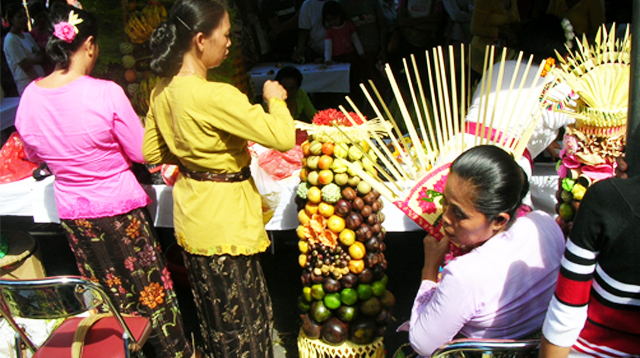- Tradition of mutual assistance or ngayah is still carried out by the Balinese people in terms of socio-religious events
- This method does not only make work easier but also strengthens the brotherhood among them.
Every Hindu religious ceremony at the temple or individual life cycle rituals (tooth filing, marriage and cremation) held by Balinese customary villagers are carried out in mutual assistance. This has been regulated in customary village regulations. Thus, the villagers who hold the ceremony will be lightened.
The mutual assistance activity to prepare the facilities for the ceremony is called ngayah. Every family head is obliged to participate in accordance with the needs of the workforce, whether it is male or female or both.
If needed, each head of the family also brings or donates raw materials for the ceremony, such as young coconut leaves, coconut and rice.
This mutual assistance or Ngayah activity is carried out starting from installing and dismantling the tent, peeling coconuts and making offering containers from woven bamboo. By and large, this is done by male residents.
Meanwhile, female residents are involved in making various kinds of offerings needed and providing consumption.
All these activities are coordinated by prajuru or traditional village administrators. First of all, the family holding the ceremony reports to the kelian or chairperson about the plan to hold the ceremony and the schedule of the event.
By that way, the coordinator will easily manage the resources of his citizens through the division of tasks. The time is also arranged in such a way so that residents can still carry out their regular activities.











